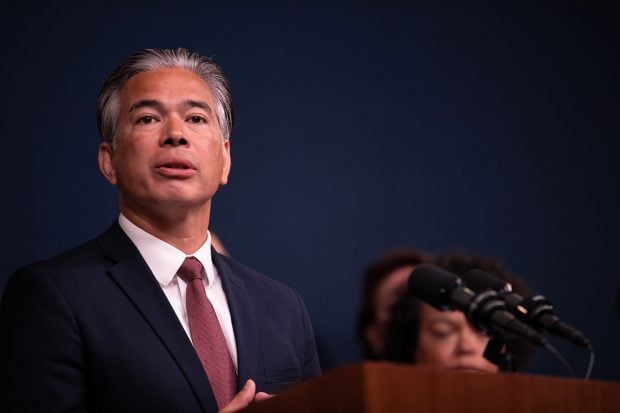 Calif. Attorney General Rob Bonta.
Calif. Attorney General Rob Bonta.
Credit/California Department of Justice
Overdraft fees have been a contentious social and political issue for credit unions during the past year with some experts coming out against the fees as targeting minorities, while some see the fees as the cost of doing business.
The political and legal risks of overdraft fees have reached a new level as California's Attorney General has sent out a warning to state-charted credit unions and banks that overdraft fees may violate the state's Unfair Competition Law (UCL) and the federal Consumer Financial Protection Act (CFPA).
Recommended For You
California Attorney General Rob Bonta issued letters to 197 state-chartered credit unions and banks with assets under $10 billion on Feb. 20 warning of the possible legal violations of overdraft fees.
"Overdraft and returned check fees needlessly strip away money better spent elsewhere and penalize poor consumers. All too often, consumers don't have a chance to avoid these surprise fees," Attorney General Bonta said. "The CFPB has already put a stop to the worst practices by the biggest banks and credit unions. Now it is time for everyone else to follow suit: I urge all of California's banking institutions to comply with federal and state law by eliminating these unfair fees."
In the letter, Attorney General Bonta encouraged banks and credit unions "to review its policies and practices regarding two types of fees that some financial institutions charge their customers: (1) surprise overdraft fees, which are assessed even when a consumer cannot reasonably anticipate that a debit or checking transaction will overdraw their account; and (2) returned deposited item fees, which are assessed when a consumer deposits a check that is returned, even when the consumer has no knowledge of or control over the circumstances that caused the check to be returned. These fees cause significant financial harm to California's most vulnerable consumers."
Bonta's letter stated the UCL and CFPA "both prohibit unfair acts and practices against consumers." Specifically, the act is unfair if "the gravity of the harm to the alleged victim" outweighs "the utility of the defendant's conduct."
In a Feb. 27 post by financial services attorney Kristen Larson with the law firm Ballard Spahr, LLP, she wrote, "the AG letter seems to piggyback onto the CFPB's unfairness arguments" concerning overdraft fees. Larson continued that "the AG Letter potentially casts a broader net than the CFPB" by arguing that overdraft fees are likely an unfair business practice that violates the UCL and CFPA.
Larson stated the legal horizon of Bonta's position is uncertain as it depends how the California Department of Financial Protection & Innovation (DFPI) and courts view the practice of overdraft fees.
"It is unclear how courts or the DFPI would apply an unfairness analysis to overdraft fees other than those charged on ASPN transactions," Larson wrote. "While institutions could argue that overdraft fees and returned deposit fees are used to lower the overall cost of consumer checking accounts, the AG Letter suggests that the DFPI would conclude that even assuming such fees reduce overall costs, any benefit to consumers is not outweighed by the harm such fees cause to consumers by disguising the true cost of banking and making comparison shopping more difficult."
© Touchpoint Markets, All Rights Reserved. Request academic re-use from www.copyright.com. All other uses, submit a request to [email protected]. For more inforrmation visit Asset & Logo Licensing.







